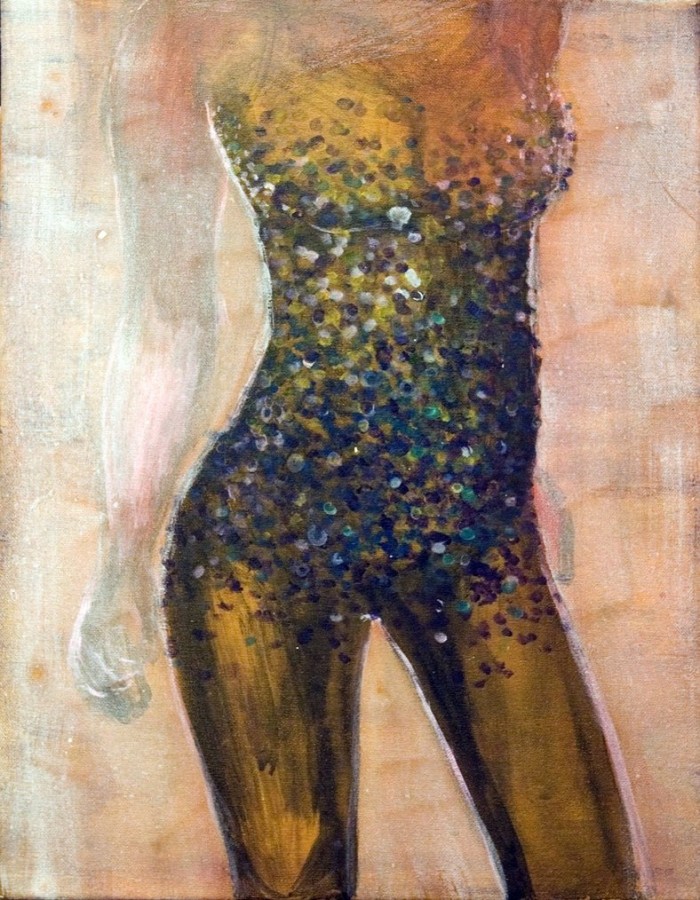I had a client once whose boss insisted on using positive-only language in the workplace. So, when giving feedback about mistakes and areas for improvement, he’d say, “You have a great opportunity to practice your communication and organization skills here” instead of “You’re awkward and messy.”
I thought that was just brilliant.
So, for me, around the same time every month, the opportunity comes to do some very deep self-awareness work.
The more I’ve become aware of the effects of hormones on my mind and body, the more amazed I’ve been that there was a point when I was not at all aware of these effects. There was a time when I would spend a week alternating between bitchy and depressed, thinking that the reason was whatever my mind told me was the reason.
Whether or not you’re a woman, stick out for this one, because if you are, then this is absolutely something you must know about yourself, and if you’re not, this will give you incredible insight into the behaviour of women in your life.
I should prerequisite this by saying: not everyone in the world is as hormonal as I am. And am I ever. This also isn’t likely to apply to women on birth control.
And so, in a best-case opportunity (worst-case real-world) scenario, here’s what happens. Somewhere around two weeks before a woman gets her period, there’s a hormone spike. It doesn’t make itself known in English. It does not come and say, “Hello, I’m here with your monthly dose of mood swings.”
It just comes.
So, you start to feel an increased intensity of physiological stimulation. In a past life, I worked with kids with Autism, and from what I’ve seen, I experience a mild version of what they experience all the time when I’m flooded with hormones.
I can hear sounds more clearly. I can sense touch more intensely. Colours are brighter. Smells are more powerful. Lights are brighter. My digestive system becomes more sensitive. A few tablespoons of coffee start to have the same effect as a cup.
It sounds like a superpower when you look at it like this, doesn’t it? Seems like you’d go around sensing and touching and loving everything with your heightened senses.
What really happens is that everything becomes incredibly annoying. The lights are too bright. The sounds are too loud. The coffee is too strong. That touch is too intense. That food is too hard to digest.
Imagine sitting in traffic or under office desk lights in that state.
The worst thing about this is that many women have zero idea—no idea at all whatsoever—that it’s happening.
How can this be?
How can someone have their perceptions so deeply altered with zero awareness?
What happens is that you think it’s all the external things around you that are annoying. You think it’s the sounds, the people, the cars, etc. And, actually, that is right—in a way.
In all the time I’ve been practicing radical self-awareness during high-hormone times, I’ve never, and I mean never, felt annoyed while doing yoga, meditating, or walking in nature. I’ve never felt like there was just too much sun, too many trees, too many horses galloping across the horizon (not that I’ve ever seen that kind of thing, but I’m just certain it wouldn’t be annoying).
What a hormone surge does is it gets rid of a woman’s ability to numb herself to the quality of her environment.
This, for most women, is a huge liability and source of irritation. With some radical self-acceptance, however, it really can be a superpower, if we allow ourselves to listen to the communications of our bodies and switch into environments that serve our vulnerable, defenseless selves.
Now, that’s the external story. The internal, mental story is quite different.
Since we’re already in this physiological state of annoyance, discomfort, pain—this triggers a spiral of thinking. Feeling crappy and annoyed will draw forth latent thought patterns like, “I’m not good enough” or “My life is worthless.”
These thoughts don’t come from nowhere. They’re already sitting inside the woman’s mind—they are her own, personal toxic thought patterns. These are her own opportunities.
What the physiological state of high hormones allows the woman to do, then, is to bring those toxic thought patterns into her awareness. No, not allows. Forces. It forces her to look at those toxic thoughts.
Most people in our society are hard-wired to believe all their thoughts, so unfortunately, high-hormone times are frequently traumatic. I don’t use that word lightly. For many women, these times are when they abuse themselves the hardest—these are the times when they cultivate the patterns of mental distress and suffering that run and ruin their lives.
So what can we do?
If you’re a woman and you’re feeling like this might be affecting you more than you’ve allowed yourself to see, I’ve got a five step sequence that you can begin with to start turning those periods of suffering into opportunities. If you’re not a woman, and you know someone who really, really needs to read this, then pass it on.
(By the way, when I began to have epiphanies about this, my partner actually laughed out loud. When I asked him why he was laughing, he said, “Well, it’s really obvious to guys that it’s happening. We’re not really sure what’s happening, but something obviously is. It’s incredible that most women have no idea.”)
And thus, the process of practicing hormonal self-awareness:
Step 1: Recognize and honour the presence of cycles in your life
Realize that, at different times, you will have different energy levels, different levels of arousal, and different abilities of perception. Don’t force your body to do things it doesn’t want to do. Accept that different parts of the month will be different. Promise to honour these differences and listen to feedback about how you’re doing.
Step 2: Practice radical comfort
When you’re overly sensitive, find a way to maximize your comfort. For me, it’s dimming the lights, saying “No” to working, and spending as much time either alone or in deep conversation as I can. For you, it might be removing or adding some other activity or pleasure. Allow yourself to do what feels not only good, but best.
Step 3: Watch your thoughts
This is, always, the hardest one. Learn to watch the thoughts that come up during this time without believing them. Trust that, simply by recognizing them as thoughts, their power over you will weaken over time.
In the moment, it will seem impossible and even pointless to just sit there doing nothing but watching your thoughts, but after you do it enough times and you wake up the next morning with less attachment to that thought pattern, you’ll learn that observing your thoughts is really the only way to get out of their grip on you.
Step 4: Be grateful
The way we talk about our cycles as women in Western society is incredibly rude. Not only do we ignore the effects of our hormones, but we judge and abhor the ones that we do see. I say it’s time for a revolution of the way we talk about this incredible opportunity.
Eckhart Tolle once said that he believed women are closer to enlightenment because their pain is brought forth into their awareness each month, thus giving us the opportunity to see beyond that pain and into the truth of our existence.
If that’s not something to be grateful for, I don’t know what is.
Step 5: Make up your own mind
Perhaps most importantly of all, listen to yourself and make up your own mind about your own body.
I’m not you and you’re not me. Your experiences with this might (and will) be different. It’s your body, your hormones, your life.
The most important thing is not to find all the answers, but to commit to asking questions about how your cycles really work and about what opportunities for self-awareness and healing exist for you at every step of this process.
I think that becoming aware of this process is one of the most empowering things a woman can do. If we can commit to doing it for ourselves and to sharing what we’re doing with other women in our lives, we can all contribute to a radical society-wide shift towards self-love and peace of mind—a shift that is badly needed in our part of the world.
Love elephant and want to go steady?
Sign up for our (curated) daily and weekly newsletters!
Author: Vironika Tugaleva
Editor: Renée Picard
Photo: wudaokou at Deviant Art







Read 10 comments and reply